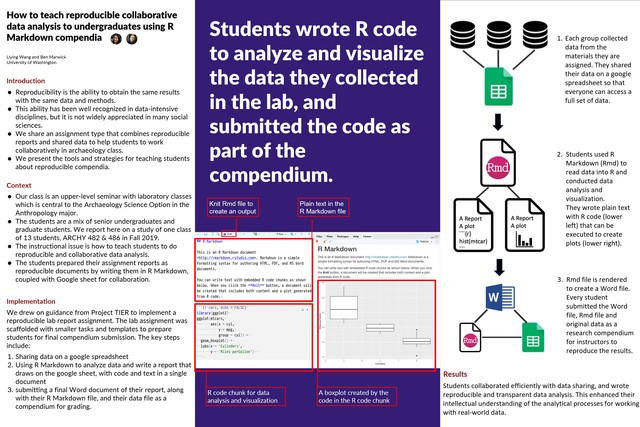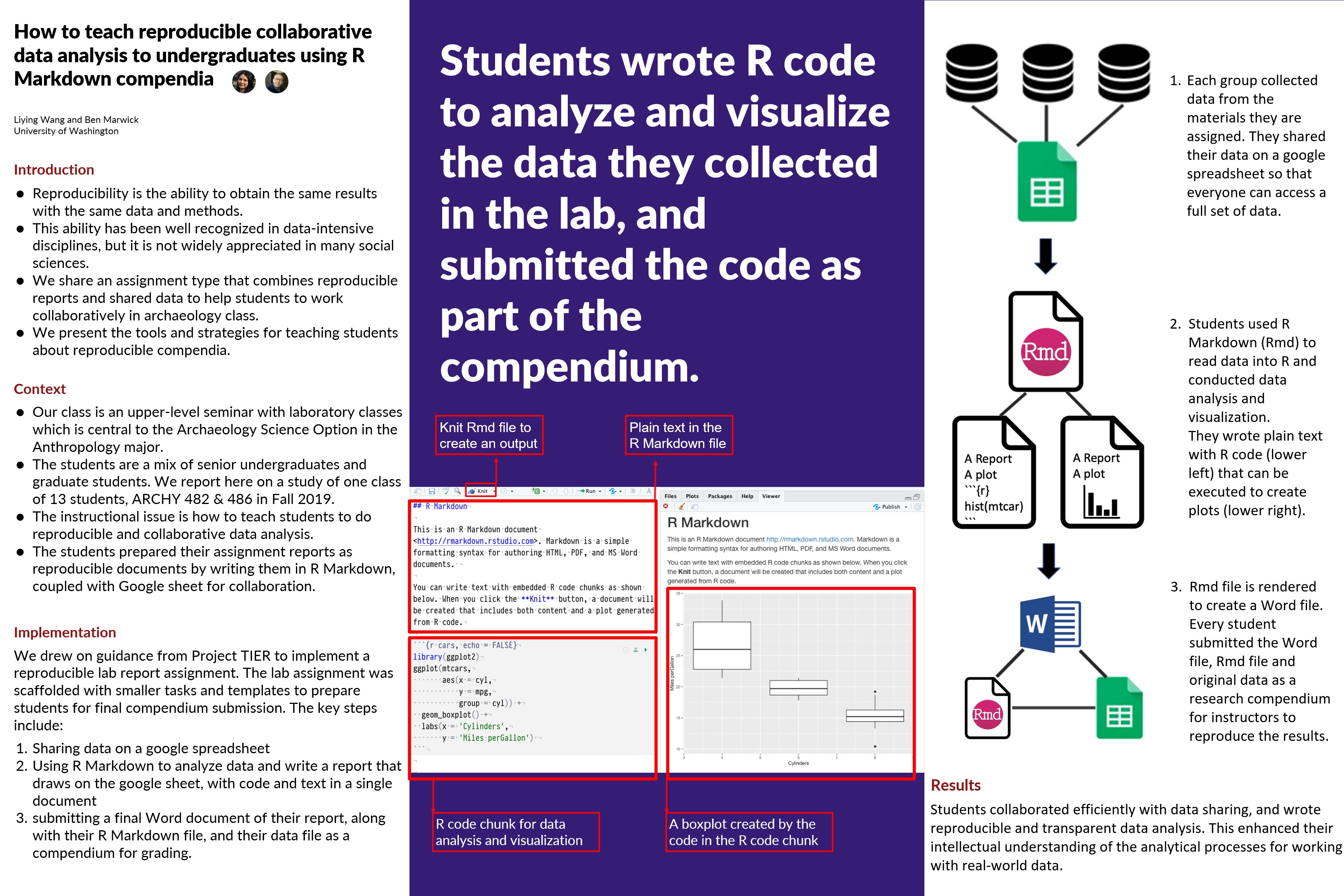Teaching Reproducible Collaborative Data Analysis to Undergraduates Using Compendia

Full description
Video Presentation
Authors:
- Li-Ying Wang, Anthropology, UW Seattle
- Ben Marwick, Anthropology, UW Seattle
Abstract:
We share an assignment type that combines reproducible reports and shared data to help students to work collaboratively in archaeology class. We present the tools and strategies for teaching students about reproducible compendia.
Our class is an upper-level seminar with laboratory classes with 15-20 students. The students are a mix of junior and senior undergraduates and graduate students. The instructional issue is how to teach students to do reproducible and collaborative data analysis.
Reproducibility is the ability to reproduce results of a data analysis. This ability has been well recognized in data-intensive disciplines, but it is not widely appreciated in many social sciences. We drew on guidance from Project TIER to implement a reproducible lab report assignment. The key steps include: (1) sharing data on a google spreadsheet; (2) using R Markdown to analyze data and write a report that draws on the google sheet, with code and text in a single document; (3) submitting a final Word document of their report, along with their R Markdown file, and their data file as a compendium for grading. The lab assignment was scaffolded with smaller tasks and templates to prepare students for final compendium submission.
Students wrote R code to analyze and visualize the data they collected in the lab, and submitted the code as part of the compendium. We learned that assignments requiring computational reproducibility are effective in teaching laboratory classes. Students collaborated efficiently with data sharing, and wrote reproducible and transparent data analysis. This enhanced their intellectual understanding of the analytical processes for working with real-world data.
Instructors in other disciplines can take inspiration from our success in requiring a reproducible compendium as a final lab report. Instructors can use R Markdown and google sheets in any upper-level class in empirical social sciences and related fields.
Poster PDF
View a PDF version of the poster in Google Drive to enlarge the image or download a copy.Comments
The presenter for this poster will be available to respond to comments during Poster Session 2 on April 20, 3:45-4:30 p.m.Comments
to view and add comments.
Annotations
No one has annotated a text with this resource yet.
- typeImage
- created on
- file formatjpg
- file size1 MB
- rights


